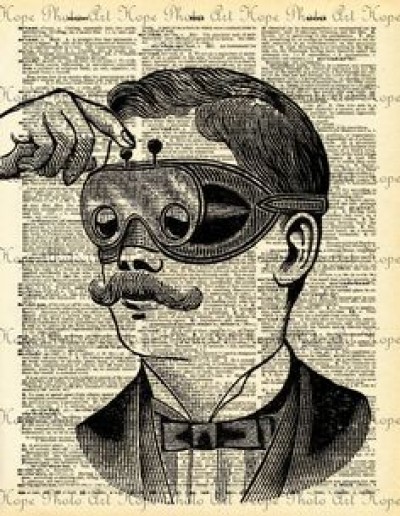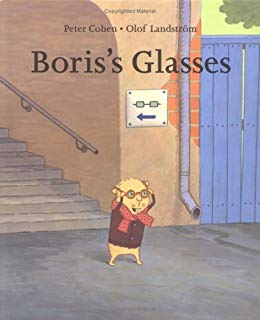The Blog
Blog Entry
Vision Quest

Picture a place where near-sighted children are encouraged to get glasses, but not to depend on them, to use bicycle helmets, though once in a while to also feel the wind through their hair, and wear sunscreen in moderation. Apparently you’re picturing Sweden.
Or anyway that is the temperate spirit of Boris’s Glasses, one of a number of books emitting from those northern latitudes that isn’t so terminally flummoxed about teaching the wrong lesson that it forgets to tell a story which surprises. Boris, the young rodent in question (Is he a chipmunk? I think so. Though it would not surprise me to hear he was a mole) starts noticing a certain fuzziness in his surroundings – television first, with the rest of his home life to follow. A trip to the eye doctor – on a television repairman’s suggestion – reveals Boris to be an astigmatic, this diagnosis becoming a source of mysterious pride:
“An astigmatic, he thinks. It doesn’t sound like something wrong. It sounds like something really fine… like someone who does something, like a certain kind of job.”
This story is told in the present tense that way, something that takes some getting used to for readers more accustomed to outcomes that seem predetermined from the beginning. It’s kind of riveting after a couple of pages. Never mind that Boris is nowhere mortally imperiled; his new glasses supply most of the thrill:
“Oh mercy me!” he declares upon finally seeing clearly the girl who serves him his turnip sandwiches at the bakery. “I had no idea Gudrun was so pretty!”
Welcome to the wide world, Boris! On the strength of his astigmatism – or anyway the sense of purpose he derives from its exoticness – Boris seeks out a job supervising production in the plug department of a radio factory. In an enlightened society, this apparently counts as a diversion, which Boris is free to skedaddle when all of that paying attention to details becomes a little, well, tedious. Better sometimes, he concludes, not to know. About the cobwebs in an apartment where we do not want to have to always be cleaning, or the fuzzy (almost certainly polluted) glory of a sunset as we emerge from the factory rubbing our eyes.
It’s a pretty sophisticated conceit, but I think we can trust our children to hold onto it for a bit while we are sanitizing our hands, and covering our mouths and our bases.
As for Boris, he is hostage as much to old habits as convenience (who’s paying for all those turnip sandwiches?) though he does hold onto his glasses in the event he should ever need them. For any babies whose fingers need counting, or rosettes on a cake at the bakery. And Gudrun. Oh Gudrun! He’s going to need a cooler job.

